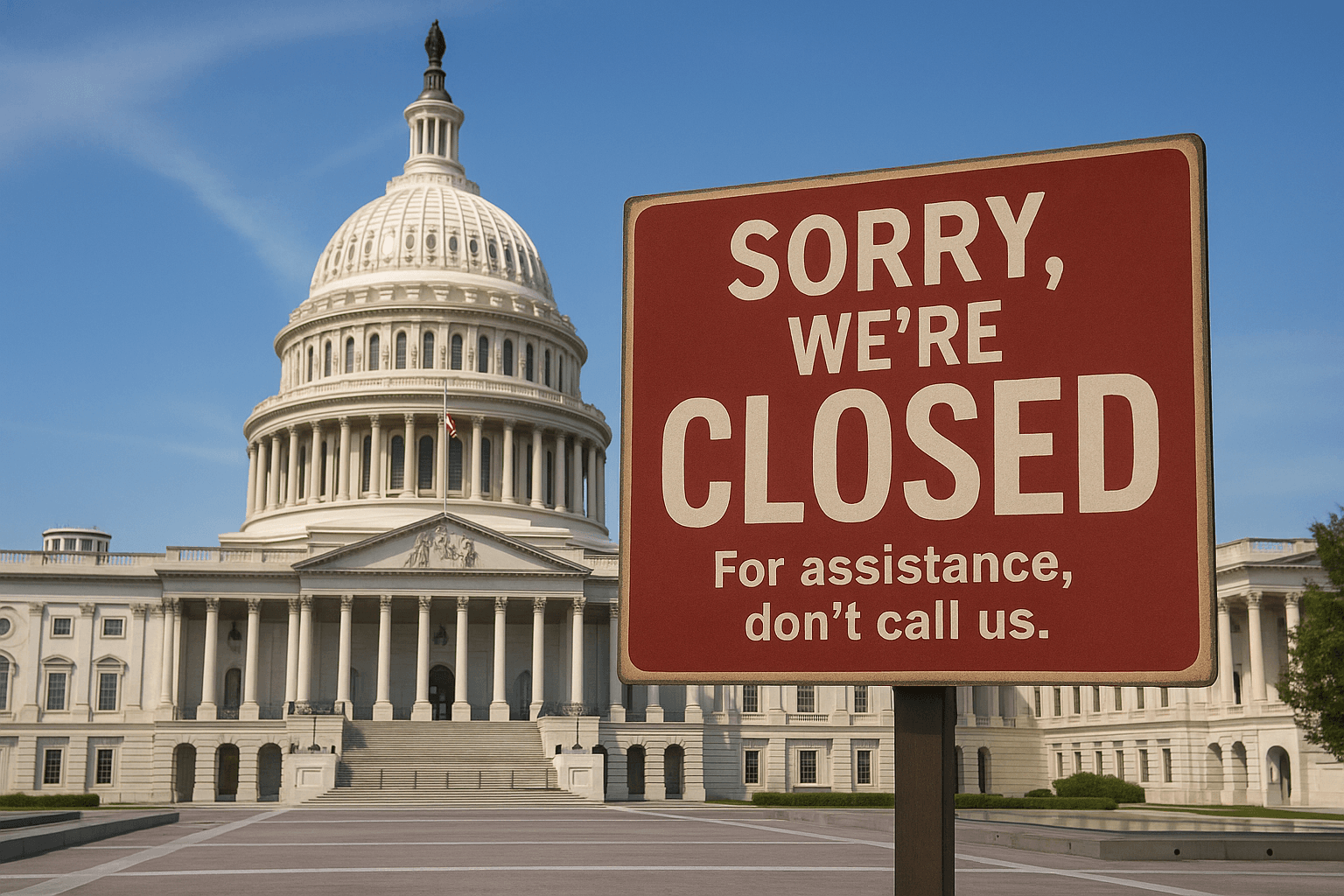The 2016 Election's Biggest Winner: Gary Johnson and The Libertarian Party?

You may be asking how the Libertarian Party could have won the 2016 election with no seats in Congress and with its presidential candidate finishing in a very, very distant third place behind the Democratic nominee, Hillary Clinton.
But in an election year that everyone considers eccentric at the least, it might not be which party technically "won" so much as which party made forward strides, and by that measure it's a great year to be a Libertarian.
For each of the main two political parties in the United States, this election -- by the numbers -- was a step backward, with the lowest voter turnout seen in 20 years.
As CNN reports:
"Voter turnout this year dipped to nearly its lowest point in two decades.While election officials are still tabulating ballots, the 126 million votes already counted means about 55% of voting age citizens cast ballots this year.That measure of turnout is the lowest in a presidential election since 1996, when 53.5% of voting-age citizens turned out."
To break it down by party:
The Democrats saw voter turnout drop from 33.7% in 2008, to 30.6% in 2012, to a twenty-year low of 26.5%! Republicans saw their turnout drop from 29.1% in 2008, to 28.3% in 2012, to their own twenty-year low of 26.3% in 2016.
Meanwhile, the Libertarian Party saw voter turnout reach a 45-year high, "easily quadrupling the highest vote totals that the Libertarian Party has ever gotten in a Presidential election," as the Libertarian Party reports.
With over 4 million votes cast for Libertarian Gary Johnson, the Libertarian Party also received the highest vote total for a third party presidential candidate since billionaire Ross Perot's independent bid for president in 1996.
So while the national Libertarian Party didn't win an elected office in 2016, it did see its turnout improve on a massive upward trend, while voters showed diminished enthusiasm for the two main parties in the United States for the third presidential election cycle in a row.
Both main parties also saw their credibility undermined, their authority challenged, and their power fragmented, as both party establishments failed to mount an effective challenge to Donald Trump, a blustering political outsider with a bare bones organization, record low spending, and more record low favorable ratings.
Meanwhile the Libertarian Party consolidated power by registering a record 500,000 Libertarian voters and gaining the strategic footholds of increased ballot access in several states, setting the stage for even bigger gains in the next election cycle.
The Libertarian Party is now an officially recognized party for the next election in 38 states, plus DC, the highest ever for the burgeoning third party. Here's a breakdown of the gains state by state from the LP's website:
- The Texas LP retained ballot access with Railroad Commission candidate Mark Miller receiving over 5 percent. The party would have had to collect over 80,000 signatures to get back on the ballot if no statewide candidate received 5 percent. This will save the party approximately $220,000 in petitioning cost.
- The LP retained ballot access in North Carolina for four years with Gary Johnson and the gubernatorial candidate, Lon Cecil, each getting over 2 percent. The party would have had to collect over 100,000 signatures to get back on the ballot if neither the presidential nor gubernatorial candidate got 2 percent, saving the party approximately $250,000 in petitioning cost.
- Iowa and Kentucky LPs are recognized parties for the first time, with Gary Johnson getting over 2 percent in both states.
- The New Hampshire LP is a recognized party for the first time in two decades due to gubernatorial candidate Max Abramson getting over 4 percent.
- The DC party is recognized for the second time ever, with candidate for Delegate to the US House of Representatives Martin Moulton getting over 17,000 votes.
- The LP retained ballot access in North Dakota, with Gary Johnson getting over 6 percent.
- In Connecticut, Libertarian Dan Reale for US House in the second congressional district, Richard Lion for US Senate, and Gary Johnson for President all received over one percent of the vote. As a result, the party will not have to petition in these races in the next election.
- Massachusetts' LP is a recognized party again, with Gary Johnson getting over 3 percent.
- West Virginia's LP retained ballot access for four years due to David Moran receiving over 2 percent in his race for governor.
Instant ballot access in these states' next election, just like the Republican and Democratic parties get, is a coveted status that will save the Libertarian Party a small fortune in money, time, and energy previously wasted on petitioning efforts just to get on the ballot.
That's resources that can go toward more fundraising, registering more voters, campaign ads, poaching disaffected voters from the two major parties, and making the case for Libertarian policies to unaffiliated independent voters.
While the Republican Party won the White House, Senate, and House of Representatives on Election Day in 2016, it might be fairer to say that it just didn't lose these races as badly as the Democrats did, and that in both cases, a downward trend in voter turnout contrasts sharply with the steep upward trend enjoyed by the Libertarian Party.
What do you think? Which party was this election's biggest winner?
Let us know in the comments below!
Photo Credit: Karin Hildebrand Lau / Shutterstock.com




